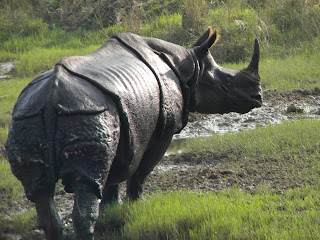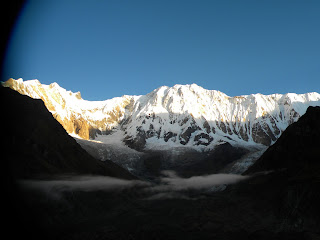“How do I regard you? I regard you as one of those men who would stand and smile at their torturer while he cut their entrails out.”
-Dostoevsky, Crime and Punishment
Please remain dead and keep your limbs inside the bonfire at all times.
“You travel alone?”
Yes.
“Some advice. My country full of thieves. These men you talk to, they thieves. Never travel by self here.”
This isn’t the sort of thing you want to hear at a bus stop in The Middle of Nowhere, India at one in the morning. The previous night the threat was more overt.
“No donation and things get very bad for you here,” I was told over and over again at Varanasi’s Manikarnika Ghat by a druggie turned forced upon me tour guide explaining that if I didn’t donate for ‘wood’, supposedly for cremations for the poor, then maybe I’d end up cremated myself. Grabbing my arm, pulling, becoming increasingly hostile, then outright yelling; call me crazy but I’m not feeling all that charitable.
I was subject to the same scam earlier in the day at a different cremation ghat. Ten rupees--twenty cents—would likely be enough to satisfy these first-I-play-friendly-but-soon-turn-psycho extortionists. Still, I don’t give. Instead I smile, shrug, and slowly walk away. I consume 3,000 calories a day, the people threatening me less than half that. Do your worst. Nothing is more ridiculous, more foolish, than the ego of the big-bodied, but in India when your shrug is followed by a shove it’s often enough to shake the fleas off. It sure beats victimization. Even if it is only twenty cents.
Unless you’re on a packaged tour or holing yourself up in an ashram or yoga retreat India will prove a trying country to exist in. The rickshaw drivers, trinket sellers (barbers, shoe repairers, ad naseam) and beggars supply unceasing harassment. In Agra a rickshaw driver followed me the entire five kilometer walk from a railway station to the Taj Mahal, pestering for a fare right up until I walked into a guesthouse. A near hour of increasingly whiny solicitation. I laughed. It’s all I can do. Let these people get to you and you’d best not visit the country. Many travelers I met in Nepal imported India horror stories, always concluding with, “We didn’t even last a week.” How long were you planning? “Thirty days.” A subconscious self-loathing—yes, Dr. Freud, it likely relates to a repressed Oedipus complex—has swindled me into planning on sixty.
Despite the difficulty India makes for fantastic travel. The religious ceremonies are am-I-still-on-planet-Earth? bizarre, every day I’m eating food I’ve never even heard of, let alone put anywhere near my mouth (my intestines are threatening to strike), and the faces—whether they’re filthy street children or the Varanasi elderly withering away by the cremation ghats to die—are infinitely fascinating. The sights, like Agra Fort, the Taj Mahal and Meherangarh Fort, are even larger and more splendid than the best photographers have been able to depict, in Agra you have the choice of being pulled in a cart by horse or camel, in Allahabad a bull might charge at you as it makes its way down the street (the roads, even in dense urban areas, are filled with cows and cow patties, not to mention plenty of human feces), and have you ever seen a charred human leg roll out of a bonfire as children chant around it?
How about some nonsensical oxymorons? India is richly impoverished, it’s lovingly hated, it’s frustratingly beautiful. Of course, the first few days it only frustrates.
No, I’m not going to give you a donation for opium wood. Yes, I agree, this will subject me to bad karma. Why should I care? I’ve found the Hindu loophole, to bathe in the Ganges is to be absolved of sin, sweep my ashes into the river in Varanasi (also known as Benares, the City of Light founded by none other than Shiva, the world’s holiest Hindu site) and I attain instant moksha or enlightenment. Curse me, grab, pull, yell, please keep your spittle below my neck, violence will only be returned in kind for I’m an American, an imperial power of the Caucasoid variety and I’ve come to civilize you as my British counterparts did until 1947. Guns, grenades, Abrams tanks, I’ll spare no expense, something you have so little of.
That, or I just want to look at a temple, a fort, and I’ll be on my way. Worry and fret over the former as I carry out the latter. One has to talk a big game in the Land of Thieves and no, not a single one goes by the name of Aladdin.
Keep drifting.
[No Taj pics, Indian internet works as well as its social security/welfare systems, a lame joke that's terribly inappropriate and not the least bit funny when you're here.]










